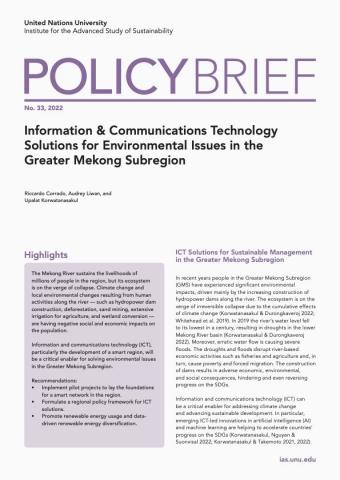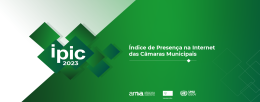
A new UNU-IAS Policy Brief provides recommendations on utilising information and communications technology (ICT) to address the negative impacts of climate change and local environmental changes along the Mekong River. The brief, Information & Communications Technology Solutions for Environmental Issues in the Greater Mekong Subregion, advocates smart city practices for sustainable management to alleviate environmental challenges in the region, while addressing the SDGs. The brief is authored by Riccardo Corrado, Audrey Liwan, and Upalat Korwatanasakul.
Highlights
The Mekong River sustains the livelihoods of millions of people in the region, but its ecosystem is on the verge of collapse. Climate change and local environmental changes resulting from human activities along the river — such as hydropower dam construction, deforestation, sand mining, extensive irrigation for agriculture, and wetland conversion — are having negative social and economic impacts on the population. Information and communications technology (ICT), particularly the development of a smart region, will be a critical enabler for solving environmental issues in the Greater Mekong Subregion.
Recommendations:
- Implement pilot projects to lay the foundations for a smart network in the region.
- Formulate a regional policy framework for ICT solutions.
- Promote renewable energy usage and data-driven renewable energy diversification.
* * *
Read more UNU-IAS Policy Briefs for the latest analysis and recommendations on solving sustainability challenges.



